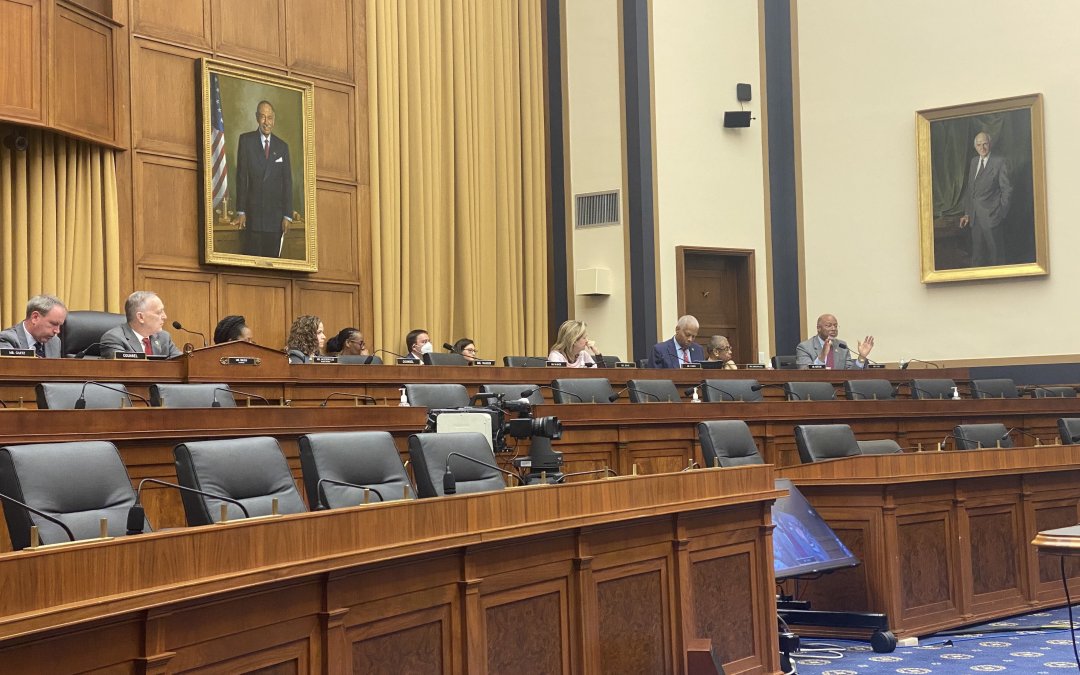WASHINGTON – House Republicans on Thursday zeroed in on the District of Columbia’s rising crime rates to portray Democrats as being soft on crime, while Democrats asserted that the hearing was called to “distract and mislead the American people.”
Members of Congress have wide power over the governing of the district because of a constitutional provision.
The House Judiciary’s Subcommittee on Crime and Federal Government Surveillance has jurisdiction over the Federal Criminal Code, which means that because the district is not a state, the federal government reviews local legislation.
While crime rates in cities nationwide have been a punching bag for Republicans, the district’s trends are drawing extra scrutiny.
“Why is crime rising here while falling nationally?” said Thomas Abt, a senior fellow with the Council on Criminal Justice, an independent criminal justice advocacy organization.
So far this year, violent crime in the district is up 40% from the same period last year. This has been the third year in a row that the district has had over 200 homicides. Nationally, homicides and other violent crimes are declining, according to a Council on Criminal Justice Report.
Just last week, Rep. Henry Cuellar (D-Texas) was a victim of carjacking at gunpoint in Navy Yard, in a case that drew much attention both nationally and on Capitol Hill.
“No one should be afraid in their own community,” said Rep. Jerry Nadler (D-N.Y.) “No one should be afraid to walk to school, go to their neighborhood park, or to drive home to their families after a long day at work.”
With crime rates rising here, witnesses urged lawmakers to put aside partisanship and come together.
“I love this city, but we need to do better,” said Richards.
So far this year, the district has had a mixed bag in crime. It reported 1,142 instances of assault with a dangerous weapon, which was up just slightly since last year, but robberies have soared 70%, to 2,721, from the same period in 2022.
Among those testifying was Gaynor Jablonski, a business owner who was attacked at his restaurant in June in front of his 4-year-old son. Prior to his testimony, a video of security camera footage from the attack was played.
Jablonski recounted how the district attorney’s office negotiated down a plea with the attacker to attempted assault with a dangerous weapon and illegal possession of a firearm.
“When I challenged them as to why they would do that, and how does that take into account the endangerment of a minor, I was told that D.C. does not have a law for endangerment of a minor,” he said.
Some lawmakers, like Rep. Jim Jordan (R-Ohio), attributed the rise in crime to the shortage of law enforcement, citing movements to “defund” the police.
“When you disparage the good men and women who put on the uniform, risk their life everyday in our streets, you also get a shortage of police officers and more crime,” Jordan said.
Greg Pemberton, a detective and chairman of the D.C. Police Union, also was critical of the D.C. Council’s anti-police sentiment after the 2020 killing of George Floyd in 2020, saying that some of the public criticism painted law enforcement in a bad light. He said both the union and the district’s police department have lost members since.
Democrats called their own witnesses to testify, including Lindsey Appiah, deputy mayor for Public Safety and Justice.
While voicing support for “making investments to ensure that MPD can recruit and retain officers,” Appiah also emphasized that prevention of crime includes non law enforcement programs, such as mental health services.
Abt said collaboration and communication between the federal government and local district government agencies could help prevent crime.
In the district, prosecution responsibility is split between the U.S. attorney’s office, which is part of the federal Justice Department, and the Office of the Attorney General for the District of Columbia. Local judges in the district are appointed by the president and confirmed by the Senate. No other jurisdiction in the nation is jointly administered in the way D.C. is, which makes it unique, Abt said.
“Violent crime in the United States should not be a partisan issue,” Abt said. “Collaboration is key.”
One solution Abt presented was amending the Privacy Act of 1974, which prohibits Congress from sharing what he said was “critical information” with local agencies.
Members of Congress were largely split along party lines over the role that guns played in contributing to crime. Appiah said the gun trafficking comes from nearby states with laxer gun laws, including North Carolina, South Carolina and Georgia.
“We need comprehensive common sense gun laws to end the violence that threatens the American people,” said Rep. Lucy McBath (D-Ga.), whose son was a victim of gun violence.
One hard-line member of Congress, Rep. Matt Gaetz (R-Fla.), argued that the district has some of the strongest gun control laws in the country, yet has some of the most violent crime in the nation.

